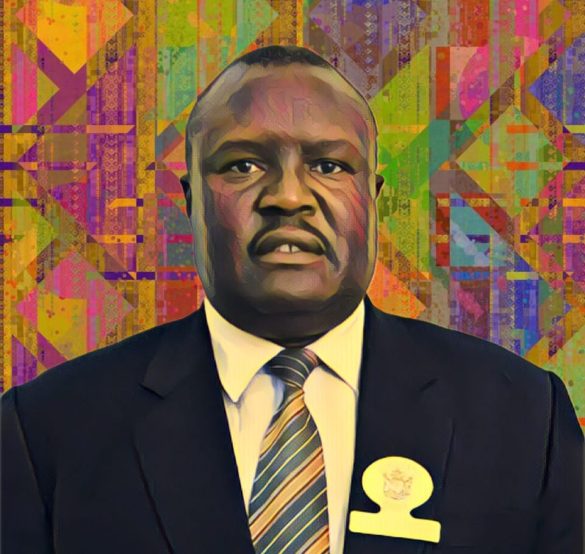Zimbabwe’s Chief Fortune Charumbira, who served two terms as the president of the National Council of Chiefs, is facing an objection to his election as the deputy president of the same council.
The Zimbabwe Electoral Commission (ZEC) said in its report on the 2023 harmonized elections that some “quotas” had reservations over Charumbira’s election, which they claimed was against the law.
The report, presented in Parliament last week, said there was a need to revisit the law under which the Council of Chiefs is constituted to address the concern.
“The election of the President and the deputy president of the Council of Chiefs saw the former Deputy president of the council being elevated to the post of President while the former president being elected as the deputy president,” ZEC said.
“While there is no explicit law prohibiting this, there seem to be some quotas who have expressed reservations on having one elected as a deputy president of the council of Chiefs after serving at its helm for two terms, as president.”
ZEC added: “There may be a need to look at the provision and consider its desirability or lack thereof going forward.”
The role of chiefs in Zimbabwe
The Council of Chiefs is a constitutional body that represents the interests of traditional leaders and their communities in Zimbabwe. The council has 60 members, 18 of whom are elected by provincial assemblies of chiefs and 10 of whom are appointed by the president. The council elects its own president and deputy president, who also become members of the Senate, the upper house of Parliament.
The Council of Chiefs has a mandate to promote and uphold the cultural values and practices of Zimbabweans and advise the government on matters affecting traditional leaders and their communities. The council also has a role in resolving disputes involving customary law and in protecting the environment and natural resources.
The impact of the election dispute
The election dispute over Chief Charumbira’s role has raised questions about the credibility and independence of the Council of Chiefs, as well as its relationship with the government and the ruling party.
Some critics have accused Chief Charumbira of being biased and partisan, and of using his position to advance his political interests.
In 2018, Chief Charumbira was sued by the Election Resource Centre, a civil society group, for allegedly endorsing and campaigning for the ruling ZANU-PF party ahead of the general elections. The High Court ordered him to retract his statements and to remain neutral, but he reportedly defied the order.
Chief Charumbira has also been accused of interfering in the affairs of other chiefs and of abusing his powers to influence the allocation of land and resources.
On the other hand, some supporters have defended Chief Charumbira as a respected and influential leader, who has championed the rights and welfare of traditional leaders and their communities.
They have also argued that the election of Chief Charumbira as the deputy president of the Council of Chiefs was democratic and legitimate and that there was no legal basis to challenge it.
Source: Newsday Zimbabwe


